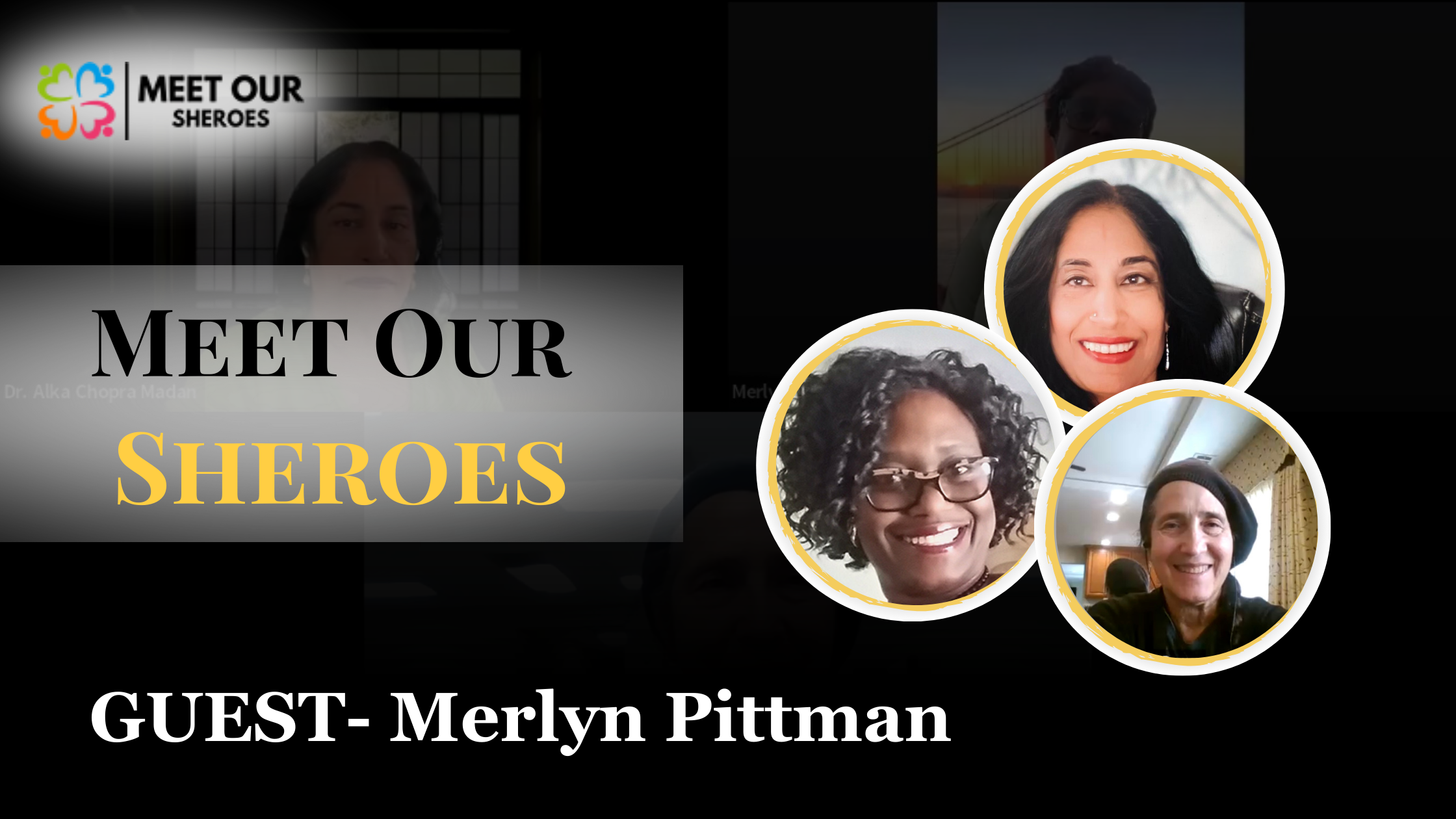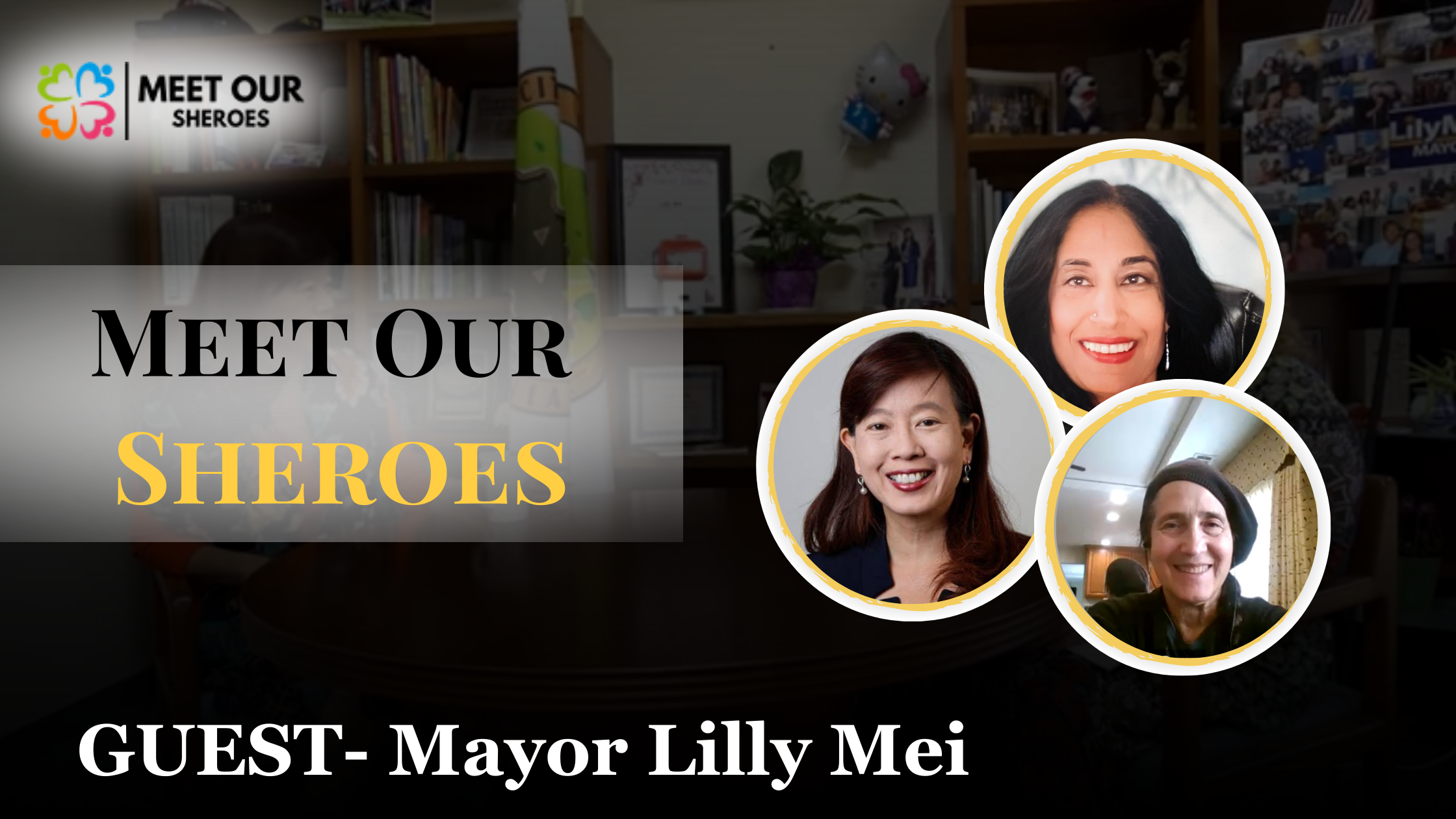We are dedicated to the advancement of women’s financial and social independence at Global Women Power. As part of our Meet Our Sheroes series, we illuminate the lives of extraordinary women who serve as sources of motivation and inspiration. Today, we introduce you to Merlyn Pittman, founder of Chest of Hope, whose remarkable journey is one of resilience, compassion, and unwavering determination..
The narrative of Merlyn Pittman commences on the island of Trinidad and Tobago. Following her 18th birthday, she relocated to the United States, where she encountered the numerous obstacles that accompany being an immigrant in a foreign land. Merlyn recalls, “Being an immigrant woman, I faced them and conquered them all,”.” During those formative years, she pursued employment opportunities such as house cleaning in order to support her small daughter and maintain financial stability. It was Merlyn’s daughter who motivated her to exert herself more. She returned to school and completed her college education in order to serve as a role model and lead by example. Subsequently, she secured employment as a corporate travel agent. However, destiny had even more ambitious plans for her.
Merlyn transitioned into law enforcement after a few years in the corporate sector, becoming a correctional officer with Miami-Dade County. She observed the harsh realities of life behind bars, particularly for women, while working in a penitentiary for lifers. Many of the female detainees she encountered were there because they had defended themselves after enduring years of abuse, resulting in tragic and fatal outcomes. Merlyn was deeply affected by these experiences, which served as the foundation for the work she would later undertake through her nonprofit organization. “Many of these women had endured abuse for an extended period of time, and when they sought to defend themselves, it was too late,” she asserts. It became fatal enough to land them in prison for life.” Merlyn’s voyage underwent an additional significant transformation when she returned to Trinidad after an extended absence. She discovered a shelter for orphans and abused children during that visit. It was not an official organization; rather, it was a four-bedroom residence that was overflowing with 65 children and had only one toilet. The mattresses were too saturated with urine to be used, so the children were sleeping on makeshift pallets that were lined with cardboard. Merlyn was impelled to take action as a result of the extreme conditions she witnessed. She initiated a personal mission to assist the children by sending supplies from the United States. This personal mission evolved into a much larger initiative: Chest of Hope. Marilyn began receiving calls from women who were fleeing abusive situations and required a secure haven upon her return to the United States. This reaffirmed her decision to broaden Chest of Hope’s mission by integrating the orphanage concept with the provision of sanctuaries for women and children who are fleeing abuse. She elaborates, “We provide them with the assistance they require to rebuild their lives.” “Chest of Hope is available to provide them with legal assistance, counseling, or a secure residence.”
Merlyn worked tirelessly to provide support to women and children in need, and Chest of Hope was officially inaugurated in 2004. It was a one-woman operation for many years, operated solely by Merlyn’s determination, with assistance from her then-husband and local fundraising efforts. Marilyn discloses, “It was not until 2010 that we established an office and volunteer staff.” “In 2018, we were awarded our inaugural grant from the state of California.” Merlyn remained unwavering in the face of the obstacles, as all funding was provided voluntarily up until that point. Her forward momentum was sustained by her profound compassion for those in need and the vision she had for Chest of Hope. Merlyn’s future objectives include the expansion of Chest of Hope’s existence on a global scale and within the United States. Her objective is to maintain the provision of secure environments for women and children, while also emphasizing prevention through education and awareness initiatives. “We want to educate people about the signs of abuse and provide resources before situations escalate,” she says. “Prevention is just as important as intervention.”
Merlyn Pitman’s involvement with Chest of Hope is characterized by an abundance of personal anecdotes and profound empathy. She discussed how the success of her nonprofit organization was not fueled by large numbers, but rather by the significant positive impact on the lives of the women and children she has assisted. Merlyn’s attention has consistently been directed toward the unique narratives that provide her with satisfaction, despite the difficult and frequently isolating nature of nonprofit management. Merlyn shared one of the first success tales about a woman who was not only battling drug addiction but had also suffered abuse. Merlyn witnessed the woman’s struggle and eventual breakthrough while working with her case manager, Caroline Mixon, which served as a pivotal moment for Chest of Hope. It was the success tale of this woman that served as the catalyst for a series of organizational victories. Merlyn also discussed an additional woman who, despite being confronted with numerous obstacles, was able to celebrate her first birthday while under the care of Chest of Hope. It was these profoundly personal encounters that distinguished Chest of Hope from other shelters. Merlyn and her staff regard each woman and child as unique individuals who require compassion, care, and attention, rather than as mere beneficiaries. Kritika Khalish, a volunteer, made Thanksgiving extra special for the women at the shelter by remaining with them while others spent time with their families. This was another poignant memory. Merlyn underscored that Chest of Hope is not merely a refuge; it is a family that provides women with a sense of value and support that extends beyond their immediate requirements. Merlyn shared that her approach to assisting women has always been motivated by empathy, as she reflected on her earlier years as a correctional officer. She maintained an interest in the lives of inmates, even while they were incarcerated, and regarded them with respect. She recounted the narrative of a woman who had been incarcerated for nearly four decades. The woman disclosed that Merlyn was the sole officer who had provided her with the feeling of security necessary to sleep soundly. Another inmate, who had been estranged from her family, won a poetry contest while in prison and attributed Marilyn’s encouragement to her reconnection with her passion for writing. Merlyn’s leadership style, whether in the correctional system or at Chest of Hope, has consistently been characterized by the ability to provide individuals with a voice, respect, and the sense that someone authentically cares about their well-being. It has never been about the statistics or the power that comes with a title for her; it has always been about making a significant impact on the lives of those she serves.
A woman who had endured both addiction and abuse was one of the stories that particularly resonated with me during our discussion. Merlyn recalls that “Caroline Mixon was one of the first individuals to provide me with guidance when I began.” Caroline provided me with assistance with our inaugural client, a woman who suffered from both substance addiction and abuse. She remained up all night praying for her, assisting her through her withdrawal and addiction until professional assistance could be obtained. This accomplishment served as a catalyst for Chest of Hope’s expansion, demonstrating that their faith-based, compassionate approach was not merely a service; it was transformative. Merlyn’s work has also had a significant impact on the lives of numerous children, as she has developed programs that instruct mothers on how to nurture their children in healthier environments. “We have women who need anger management because they don’t know how to raise their kids properly,” according to her. Merlyn and her team dedicate themselves to the education of these women, emphasizing not only survival but also nurturing, patient, and care. This profoundly humane approach distinguishes Chest of Hope from numerous other shelters.
Merlyn shared a poignant anecdote about an inmate who won a poetry contest while incarcerated as a result of her mentorship, when asked whether her time as a correctional officer enabled her to effect further change. “She recalled that her grandmother desired to meet me in order to observe the individual who had a significant influence on her granddaughter.” Narratives such as these demonstrate the enduring influence Merlyn has on those with whom she collaborates, whether they are in prison or at Chest of Hope.
Merlyn remains steadfast in her mission, despite the obstacles she faces, and she is willing to work extended hours, occasionally starting at 8 a.m. to 1 a.m.—in order to maintain the functionality of Chest of Hope. She has not taken a vacation since 2019, but she is eager to rectify this situation in the near future. “It is necessary,” she acknowledges, acknowledging that the unrelenting demands of her job can result in exhaustion without periods of respite. She is eager to work with organizations such as Global Women Power, which can assist the women under her care in securing employment and regaining their independence, and her enthusiasm for her work is palpable. Merlyn’s conviction regarding community is evident in her statement, “It is akin to a pie; the components are assembled, and the outcome is flawless.”
Merlyn provides an explanation of how Chest of Hope connects with women in need by establishi ng partnerships with critical services, including the National Domestic Hotline and 211, a local emergency service in Stockton. This dual approach guarantees that women have access to support at both the national and local levels. Merlyn also observes that the organization has expanded its services to victims of human trafficking, who are primarily referred by law enforcement agencies or the Family Justice Center. The challenges of assisting these victims are evident, as she observes that they seldom independently pursue assistance; rather, law enforcement frequently plays a critical role in facilitating their arrival at Chest of Hope. The significance of collaboration with other agencies and law enforcement, as well as the capacity to address a wide range of requirements, is emphasized by this network of connections. Merlyn’s organization has evolved into an indispensable resource for human trafficking victims, whose circumstances are frequently even more precarious, in addition to its focus on domestic violence. The United States has the highest incidence of child trafficking in the world, with 88,000 children being trafficked at the time of the conversation. This alarming statistic was mentioned during the discussion. Marilyn emphasizes that Chest of Hope’s location in Tracy, California, places it in a “corridor” that connects several large cities that are known for trafficking, making it a critical point for intervention. This geographic factor underscores the urgency of the organization’s efforts, as they are situated in a region that is a hub for human trafficking. Merlyn explores the personal obligations associated with leading such an organization. She discloses that her day generally commences at 8 a.m. when inquired about her daily work schedule. and frequently extends into the early hours of the following morning. Her dedication and enthusiasm for the cause are evident in her extended work hours. Merlyn recognizes that exhaustion is a genuine concern in this field, particularly when one is consistently confronted with traumatic narratives. She emphasizes the significance of being compassionate and caring in her position, as this is what motivates her and her team to persist in their work, despite the emotional toll. Notably, she has not taken a vacation since 2019, but she is eager to do so in the near future. This serves as a poignant reminder of the personal sacrifices that non-profit executives must make. Nevertheless, the spiritual fulfillment and personal gratification that Merlyn experiences as a result of assisting others are what help her persevere through the more challenging times.
The mutual acknowledgment of the significance of collaboration is evident in the conversation between Merlyn and the representative from Global Women Power. Global Women Power’s mission to promote women’s empowerment through job placement and skill development is exemplified by the representative’s offer to connect women at Chest of Hope with employment opportunities. Merlyn enthusiastically accepts this, recognizing that the acquisition of employment is a critical component of the process of assisting survivors in the reconstruction of their lives and the acquisition of independence. Holistic recovery necessitates this type of collaboration. Global Women Power provides a pathway to economic self-sufficiency, while Chest of Hope concentrates on providing immediate accommodation and emotional support, thereby enhancing the combined impact of the services. Merlyn discloses that her spiritual investigation commenced prior to her appointment as a corrections officer and the establishment of Chest of Hope when inquired about the spiritual aspect of her journey. She asserts that she has consistently been intuitive, listening to her spirit, and taking numerous “detours” on her spiritual journey before determining how she wished to proceed. It is evident that her capacity to confront the emotional obstacles of her profession has been significantly influenced by this spiritual foundation. She emphasizes that her connection to spirituality was not the outcome of a single event, but rather a continuous process of reflection and development. This implies that her capacity to lead with compassion and empathize is profoundly influenced by her spiritual practices, which give her the inner fortitude required to confront the harsh realities of her profession.
Merlyn has a bold vision for Chest of Hope that includes the acquisition of land to construct a “village” for survivors and the expansion of the organization state by state in the near future. This village would provide a more permanent and stable environment for individuals who require long-term assistance. Merlyn is optimistic that the organization will have secured land by November, allowing for the commencement of construction the following year. The concept of establishing a village is a bold initiative that aims to provide more comprehensive care, which not only addresses the immediate requirements of survivors but also their long-term stability and well-being.
This vision demonstrates Merlyn’s ongoing consideration of how to expand and develop Chest of Hope to accommodate the requirements of a broader audience. It also reflects her overarching objective of developing sustainable solutions that extend beyond emergency shelters, with the objective of offering a comprehensive range of services to facilitate the full reintegration of survivors into society. One of the most emotionally charged moments of the conversation was when Merlyn contemplated the challenge of assisting individuals who are incapable or unwilling to assist themselves. Although the majority of the women Chest of Hope has assisted have achieved positive results, there have been a few instances in which women have opted to depart, frequently due to seemingly insignificant factors, such as personal discomfort with sharing a space with others or the cleanliness of the shelter. These occurrences can be disheartening for an individual such as Merlyn, who has dedicated a significant amount of time and energy to establishing a supportive and secure environment.
Nevertheless, she also emphasizes that these instances are the exception rather than the norm, and the overwhelming majority of women whom Chest of Hope has assisted have achieved success. Merlyn takes great pride in the fact that the accommodations they provide are meant to feel like homes, rather than institutions, which is a contributing factor to their high success rate. Merlyn reiterates her conviction regarding the efficacy of collaboration and community. The discussion concludes with optimism. This discussion illuminates the extraordinary efforts of Merlyn Pitman and her team at Chest of Hope, as well as the critical role that collaboration with organizations such as Global Women Power plays in providing assistance to survivors of human trafficking and domestic violence. Merlyn’s narrative is characterized by an unwavering dedication to assisting others, spiritual stability, and resilience, despite the significant emotional and personal obstacles she faced. She is committed to developing sustainable, long-term solutions for those in need, which is evident in her vision to transform Chest of Hope into a statewide organization and ultimately establish a “village” for survivors. The significance of a multifaceted approach to recovery is underscored by the collaboration with Global Women Power and other local organizations, which pool their expertise to establish comprehensive support systems.
Merlyn’s voyage serves as a testament to the fact that genuine change is possible, even in the presence of insurmountable obstacles, when one is motivated by passion, collaboration, and a profound sense of purpose. The dialogue between Merlyn Pitman, the founder of Chest of Hope, and representatives from Global Women Power provides a valuable perspective on the intersection of non-profit work, community engagement, and the obstacles associated with providing support to vulnerable populations. Merlyn discusses her experiences working with victims of human trafficking and domestic violence, emphasizing the profoundly personal, emotional aspects of the work and the operational challenges of running an organization.




